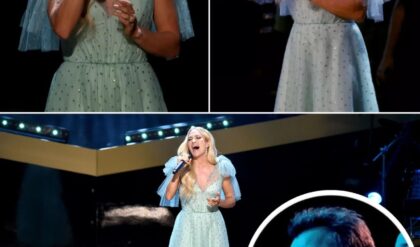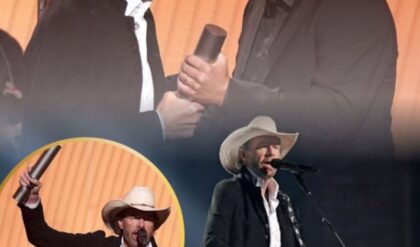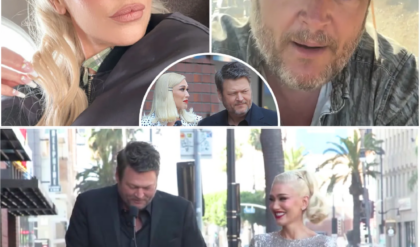The problem of ‘Palm Royale’ is that in adapting a book, it has tons of material to choose from and it chooses all of it in an indiscriminate manner.

AppleTV+’s Palm Royale does not shy away from excess. Its visual style overflows from every corner of the opulently decorated sets that depict the sunny Floridian summer of 1969. As the camera moves from the resort club to the beach-front properties to the ballroom parties, the show eagerly follows the insulated community of the high society housewives who measure each other’s worth by the size of the picture published in their daily broadsheet – Shiny Sheet. However, Palm Royale’s excesses also extend to its writing, which often ends up serving the audience a confused mess of a show.
Adapted from the novel Mr. & Mrs. American Pie, Abe Sylvia’s take on the original mean girls of the Palm Beach community unfolds mostly at the exclusive resort club named ‘Palm Royale’. Here the extensive cast of the show, who play the influential ladies of the town – Evelyn Rollins (Allison Janney), Dinah Donahue (Leslie Bibbs), and Mary Davidsoul (Julia Duffy) – exchange invitations to each other’s fundraisers and maintain the delicate ecosystem that determines each year who will be the ‘Queen of the Season’.
Newcomer Maxine Simmons (Kristen Wiig) finds it simple enough to literally hurl herself over the club’s wall to gain entry into this tightly guarded space, but she realises that fitting in with the rest of the ladies might take some time (and some underhanded tricks). Over the next 10 episodes, Maxine sets her goal at becoming a part of the elite Palm Beach society, by inheriting not only her husband’s aunt Norma Dellacorte’s (Carol Burnett) fortune but also her position as the reigning queen of the socialites.
AppleTV+’s Palm Royale does not shy away from excess. Its visual style overflows from every corner of the opulently decorated sets that depict the sunny Floridian summer of 1969. As the camera moves from the resort club to the beach-front properties to the ballroom parties, the show eagerly follows the insulated community of the high society housewives who measure each other’s worth by the size of the picture published in their daily broadsheet – Shiny Sheet. However, Palm Royale’s excesses also extend to its writing, which often ends up serving the audience a confused mess of a show.
Adapted from the novel Mr. & Mrs. American Pie, Abe Sylvia’s take on the original mean girls of the Palm Beach community unfolds mostly at the exclusive resort club named ‘Palm Royale’. Here the extensive cast of the show, who play the influential ladies of the town – Evelyn Rollins (Allison Janney), Dinah Donahue (Leslie Bibbs), and Mary Davidsoul (Julia Duffy) – exchange invitations to each other’s fundraisers and maintain the delicate ecosystem that determines each year who will be the ‘Queen of the Season’.
Newcomer Maxine Simmons (Kristen Wiig) finds it simple enough to literally hurl herself over the club’s wall to gain entry into this tightly guarded space, but she realises that fitting in with the rest of the ladies might take some time (and some underhanded tricks). Over the next 10 episodes, Maxine sets her goal at becoming a part of the elite Palm Beach society, by inheriting not only her husband’s aunt Norma Dellacorte’s (Carol Burnett) fortune but also her position as the reigning queen of the socialites.
An incredible asset for the show comes naturally in the form of its immensely talented cast. Carol Burnett is immediately funny even in a mostly non-speaking role, while Allison Janney plays her power-hungry catty role with ease. As Maxine, Kristen Wiig exercises her SNL acting chops that enable her to fit comfortably in a show that requires loud reactions. Infinitely amiable, Wiig portrays Maxine as a kind of shifty character – someone who reveals all her schemes, but shies away from showing emotion. There is an almost earnest quality to her strive, which makes you want to root for her over the others vying for the same position. Ricky Martin and Laura Dern essay supporting roles, as Robert (a waiter at the club) and Linda (an activist), both existing on the fringes of this rich community with little desire to fit in.
All these performances are enjoyable despite a script that does not know what to do with them. Clearly meant to span multiple seasons, the writing seems unclear on whether it wants to become a character-driven drama or one that is plot-heavy. When it ends up doing both, none of it convinces you enough to invest time in a show that is confused about its own motivations.
Palm Royale’s problem is that in adapting a book, it has tons of material to choose from and it chooses all of it in a indiscriminate manner. Shifting tonally between a dark comedy, an absurdist surreal drama, and a sincere story about an underdog, the actors do a good job of handling these transitions, but their efforts make up for only so much.
Palm Royale is available for streaming on AppleTV+, with new episodes every Wednesday




